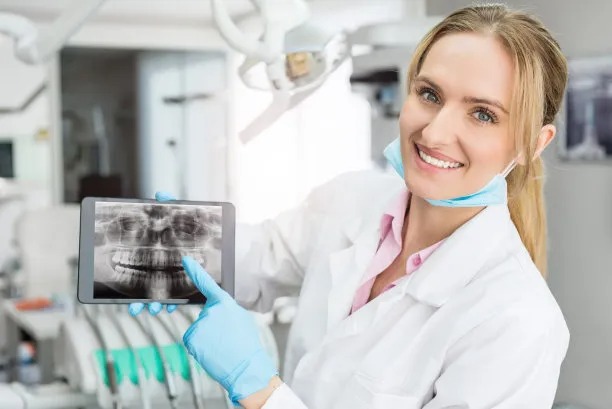Revolutionizing Smiles The Comprehensive Benefits and Innovations of Dental Implant Treatment for Modern Oral Health
Summary: Dental implant treatments have revolutionized modern oral health, combining innovation with numerous benefits for patients seeking to restore their smiles. This article highlights four crucial aspects of dental implants: their structural advantages, long-term health benefits, aesthetics, and advancements in technology. By addressing these areas, we can understand how dental implants not only enhance individual self-esteem but also promote overall oral health, making them a popular choice in dentistry today.
Structural Advantages of Dental Implants

Dental implants are designed to resemble the structure of natural teeth closely, providing a strong foundation for replacement teeth. At their core, dental implants consist of a titanium post inserted into the jawbone, which serves as the root of the missing tooth. This unique integration with bone, known as osseointegration, establishes stability and durability that conventional dentures and bridges cannot offer.
Beyond structural support, dental implants contribute to the health of the jawbone. When a tooth is lost, the jawbone can deteriorate over time due to lack of stimulation. Implants provide the necessary stimulation by mimicking the natural tooths roots, thus preventing bone loss and maintaining facial structure. This aspect is critical for patients who wish to avoid the sunken appearance that often accompanies missing teeth.
Additionally, dental implants do not involve grinding down adjacent teeth, as seen in bridges. This preservation of surrounding natural teeth is an essential consideration for long-term oral health, making dental implants a proactive choice for many people. Overall, the strong structural advantages position dental implants as an ideal solution for both functionality and longevity.
Long-Term Health Benefits of Implants
The long-term health benefits of dental implants extend beyond aesthetics. One significant advantage is the improvement in oral hygiene that comes with implants. Unlike traditional bridges that can trap food particles, dental implants are easy to clean and maintain. Patients can brush and floss them just like their natural teeth, reducing the risk of decay and gum disease.
Additionally, dental implants can enhance functionality, allowing for better chewing and eating experiences. Patients report that their ability to enjoy a diverse diet increases significantly after receiving implants. This dietary freedom is essential for overall health, as it enables better nutrition and supports a balanced lifestyle.
Moreover, dental implants contribute to improved speech patterns. Many patients who choose removable dentures face challenges with speech clarity due to the slipping or shifting of the appliance. Implants provide a secure option that not only supports pronunciation but also enhances confidence in social interactions.
Aesthetic Improvements Through Dental Implants
Aesthetics play a crucial role in the decision-making process for individuals seeking smile restoration. One of the standout features of dental implants is their natural appearance. Carefully crafted to match the color, shape, and size of surrounding teeth, implants blend seamlessly into a persons smile, offering not just function but also beauty.
The psychological benefits stemming from improved aesthetics cannot be overlooked. Many patients experience a boost in self-esteem and confidence once they have their implants placed. This boost often translates into more social interactions and improved quality of life. The ability to smile freely without the embarrassment of missing teeth can be transformative.
Moreover, dental implants help maintain the overall contours of the face. By preventing bone loss, they ensure that facial structures remain intact, providing patients with a youthful and vibrant look. In this way, dental implants serve not only as functional replacements but also as a means to enhance ones aesthetic appeal.
Technological Innovations in Dental Implant Treatment
The field of dentistry continues to evolve with advancements in technology, leading to improved implant procedures and outcomes. Innovations such as 3D imaging and computer-guided implant placement have revolutionized the planning stages of implant surgery. These technologies allow for precise measurements and strategic positioning of implants in the jawbone, enhancing the success rate of the procedure.
Furthermore, the introduction of advanced materials and surface treatments has contributed to better osseointegration. Coatings that promote faster healing and greater integration with bone mean that patients can enjoy quicker recovery times and less discomfort. This aspect is particularly appealing to those who wish to return to their daily routines promptly.
Lastly, the growth of minimally invasive techniques has made dental implant treatment accessible to a broader population. Procedures that once required significant surgery can now be performed with little to no incisions, resulting in fewer complications and a more comfortable experience for the patient. This commitment to innovation ensures that dental implants will continue to be a leading choice in restorative dentistry.
Summary:
In conclusion, dental implants have significantly impacted modern oral health through their structural advantages, long-term benefits, aesthetic improvements, and technological innovations. They provide not only a functional solution for missing teeth but also honor the importance of preserving ones self-esteem and overall health. With continuous advancements in dental technology, the future of dental implants is brighter than ever, promising to enhance smiles for many people.
This article is compiled by Vickong Dental and the content is for reference only



